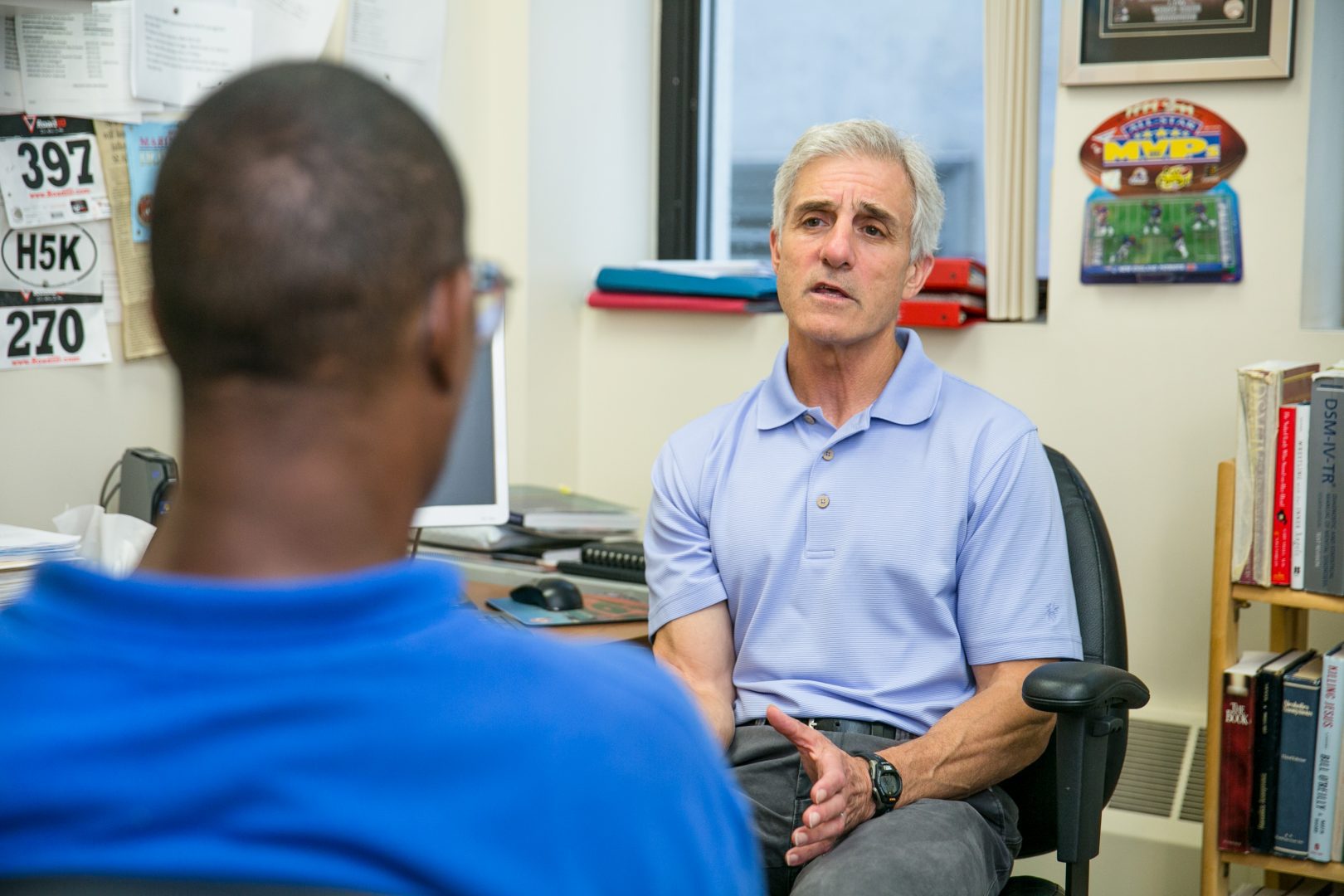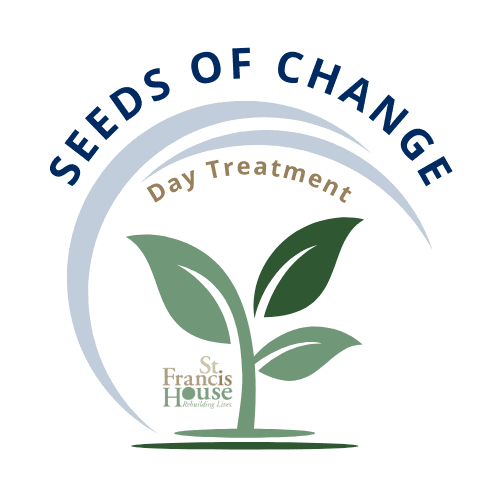May is Mental Health Awareness Month. Here at Saint Francis House, mental health issues are something that we are continuously aware of, as so many of our guests struggle with mental health disorders.
Almost all our guests are coping with some type of trauma. It may be focused trauma stemming from an incident, such as an assault. Or it could be the ongoing trauma of experiencing homelessness, or being continually at risk of becoming unhoused. This is a constant burden so many of our guests. Trauma manifests itself in many different ways; it may come out in substance use disorder as a means of coping, and it often produces depression and anxiety. The weight of trauma can be tremendously taxing.
SFH also has guests who suffer from pronounced psychiatric disorders such as bipolar disorder, schizophrenia, and schizoaffective disorder. Mental illnesses such as these can lead to additional barriers and challenges for this very vulnerable population.
Currently, Saint Francis House has 177 guests who access mental health services monthly. In addition to this number, many other guests receive services on an occasional, ad hoc basis.
How Saint Francis House meets the mental health needs of our guests
Saint Francis House does not directly provide therapy; however, we do provide support to those dealing with mental health issues. As Molly Dugan, Associate Director of Behavioral Health explains, “This is a very complicated space. Because our guests grapple with their mental health, we’re always offering support in this arena, walking a fine line between therapy and the types of behavioral mental health services we’re well-equipped to provide.”
A typical scenario could involve helping a guest faced with the highly stressful task of filling out a myriad of housing applications. The case manager might suggest mindfulness techniques that help the guest take a deep breath and destress the situation. SFH also helps guests navigate the resources that are available to them in the mental health arena. Case managers work closely with the Department of Mental Health, doing “warm hand offs” that connect guests to the right resources. And clinicians are on call five-days a week to jump in to difficult situations. When there is an immediately critical situation, such as a guest experiencing a severe mental health crisis, SFH staff are involved in crisis intervention. Here, the immediate response is calling an ambulance and getting the guest hospitalized if need be.
“We see ourselves as a bridge,” Molly says, “A trustworthy source that can make connections forward to more therapeutically focused services. I call what we do ‘therapy light.’ We don’t provide therapy, but we do support people with complex mental health issues.”
Working towards an integrated approach to mental health services
Since joining SFH last November, Molly has been impressed with how well our staff members respond to the mental health needs of our guests. “The staff are very aware and very respectful of our guests. They all want to do the right things to help people, and make this a better and safer place for everyone. There’s a degree of emotional intelligence on our staff, to a degree that you don’t see everywhere.”
The widespread emotional intelligence of the SFH staff is providing a solid platform for building more integrated mental health care across all the different programs and services that SFH offers. To this end, SFH is piloting a new program focused on harm reduction outreach. (This program was described in our previous blog post.)
The two new harm reduction specialists will spend some of their time out in the community, but when they’re working back at SFH, part of their role will be that of “internal ambassadors”, making sure that all the services are aware of and in sync with what they’re doing. This will look different depending on the department. Meshing with the Workforce Development team might mean participating in a MAP session, introducing themselves to the students and telling them about their work. To integrate with the Community Engagement Services (CES) department – which has the closest “eyes on” with respect to the daily goings and comings of our guests – the harm reduction specialist may regularly participate in CES staff meetings.
“By piloting the integrated approach with our new harm reduction specialists, our goal is to create a model that will help integrate all of our behavioral health services throughout the organization,” Molly says. “And conversely, it will also help the members of our department become more conversant in all of the services that Saint Francis House provides.”
The bottom line: a heightened ability to help our guests rebuild their lives.



